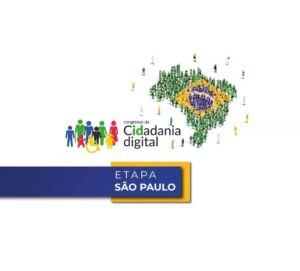Working for over 45 years to strengthen cooperation between its associates and formulate public ICT policies, the Brazilian Association of State Entities of Information and Communication Technology (ABEP-TIC) is the newest entity to join the associated partners of the International Institute of Identification (InterID).
In the evaluation of the director-president of InterID, Célio Ribeiro, there is a great convergence and alignment of purposes between the entities, in addition to the fact that the alliance collaborates for the Institute to become even more present and participative.
“ABEP-TIC has been doing an excellent job in all units of the federation, in the area of public ICT and in its representativeness of the discussion and strategic and technical role of the digital transformation of state governments. Its commitments and activities are fully adherent to InterID’s objectives and further strengthen our presence and participation together with those who are on the edge and effectively dealing with needs and solutions for citizens.”
For Lutiano Silva and Leandro Moura, Chairman of the Board and Executive Chairman of APEC-TIC, respectively, this partnership will strengthen the digital transformation agenda of the states under the process of modernizing society’s civil and digital identification, through collaboration between entities in technical discussions and experience sharing, connecting views of public administration and the market.
About ABEP-TIC
Founded in 1977, the Brazilian Association of State Entities of Information and Communication Technology (ABEP-TIC) has been working to promote and strengthen cooperation among its associates and to formulate public ICT policies in the various governmental spheres, with a view to strengthening the public informatics as an instrument of management, provision of services and citizenship. ABEP also operates in the annual holding of SECOP – National Seminar on ICT for Public Management and the Excellence in Electronic Government Award (e-Gov Award), as well as in the exchange with public and private entities in the promotion and dissemination of solutions with the community, in addition to being a reference in the elaboration of laws and norms for information technology.




